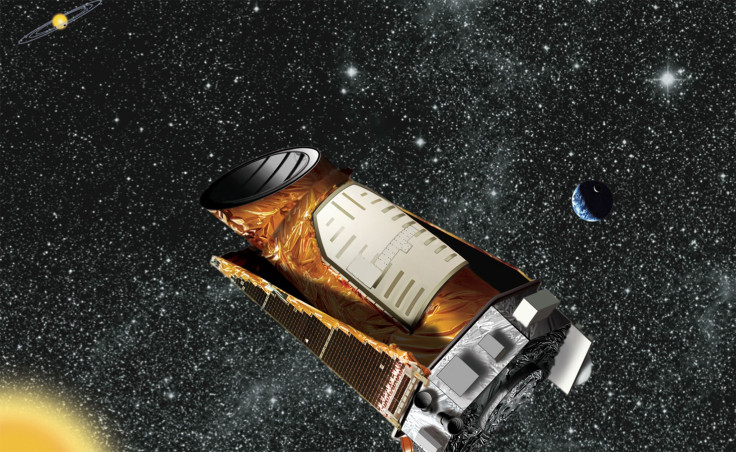NASA's Kepler Telescope Discovers Ancient Solar System From The Dawn Of Universe

A team of scientists on Tuesday announced the discovery of the oldest planetary system observed to date in the universe. The discovery of the ancient planets, believed to be over 11 billion years old, suggest that ancient life in the universe might be more likely than previously thought, according to a paper published in the Astrophysical Journal.
The planets orbit a star named Kepler-444, which is 11.2 billion years old. That's more than twice the age of our sun.
The ancient solar system, 117 light-years from Earth, contains five planets ranging in size from Mercury to Venus, and is believed to have formed merely 2.5 billion years after the Big Bang gave birth to the universe, making it almost as old as the Milky Way. It was infact already 6.7 billion years old when our sun and planets were born.
“This system shows that planet formation could take place under very different conditions from the ones in which our solar system was formed and has implications for estimating the total number of planets in our galaxy, and other galaxies,” Yale University's Sarbani Basu, who is a co-author of the study, said in a statement released Tuesday.
However, the chances of life existing in the Kepler-444 planetary system are slim. Using data gathered from NASA's Kepler space telescope and utilizing a technique called asteroseismology, which studies the natural frequency at which the star pulsates, and observing fluctuations in the star’s light when a planet moves in front of it, scientists calculated that the planets do not fall under the so-called habitable “Goldilocks Zone” -- making it impossible for life as we know it to exist on them.
Nevertheless, the observation has opened up the possibility that Earth-like planets harboring ancient life could have existed in the early universe.
“There are far-reaching implications for this discovery,” Tiago Campante from the University of Birmingham and the lead author of the study, said in the statement. “We now know that Earth-sized planets have formed throughout most of the universe’s 13.8-billion-year history, which could provide scope for the existence of ancient life in the galaxy.”
© Copyright IBTimes 2025. All rights reserved.






















